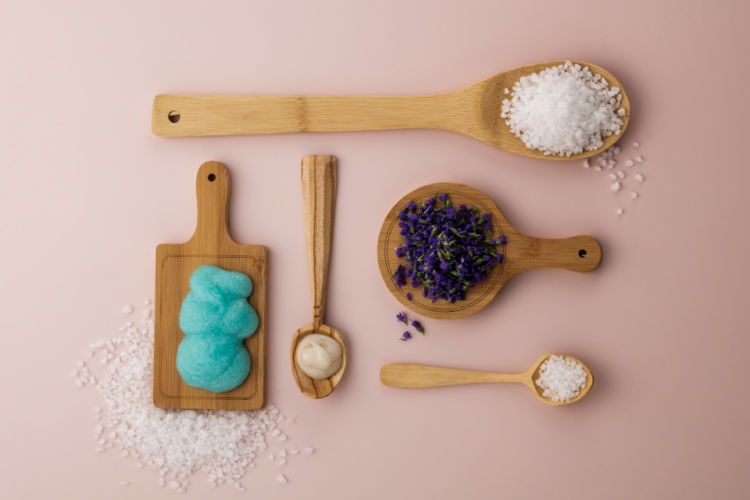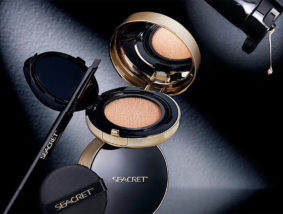Natural, organic ingredients. These are the stars of the ‘healthy’ trend in the beauty industry. They are part of the desire for a healthier, simpler life; a life filled with the things that connect us to nature. Nature-based cosmetic products sustain the environment, and are flag-bearers for the use of organic plants, fruits and vegetables. Cosmetic companies that manufacture natural, organic products are growing – in size and number – while the entire industry itself is developing and expanding.
Recent studies have found that natural, organic cosmetics hold an ever-widening market share. In the next 6 years, the market is expected to reach a value of $22 billion, a growth of 8.8%. Facial cosmetics is the largest segment with expected growth of 30.9% by the year 2024. The next largest segment is hair care.
Consumer demand is creating this growth. In an industrialized age, when antibiotics are commonly added to foods, and we struggle with pollution, chemicals in cosmetics, and mental stress caused by fast-moving lives, a new healthy awareness trend has emerged. It has come together with an aspiration to slow down, protect the environment, eat organic foods sourced directly from the growers themselves, and use nature-sourced products, all in an attempt to achieve a true synergy between ourselves and the environment we live in.

A range of cosmetic companies are now producing separate lines that include natural and even organic cosmetics, and every day, new companies are cropping up, offering pure products containing natural and organic ingredients. Consumers are reading the fine print on cosmetic packages, and are looking for full transparency from cosmetic companies about the ingredients in their products. For today’s consumers, it is important to know what they are putting on their skin, the product’s use-by date, how much time the product can be used for after the bottle has been opened, and where the ingredients were sourced.
Natural and organic cosmetic companies are pleased with the meticulousness of consumers, and tend to cooperate with them. However, the emphasis they put on ethics is not separate from aesthetics. After all, we are still in the world of cosmetics.
100% chemical free products
When a company declares that their products are free of chemicals, parabens, pigments, preservatives and petrolatum, the chances are that fans of natural cosmetics will choose them. In these cases, the products are not tested on animals, and the companies dedicate a certain percentage of their sales to protecting the environment. Also, the packaging is made from recycled materials, and usually there is an option to refill, so there is no need to buy a new bottle. The ingredients included in the product are specified in detail on the packaging. They are written clearly (even the fine print, which generally doesn’t exist in standard cosmetic products.)
From nature to the body
Honey, cocoa, coffee, nuts, coconut, papaya, cucumber and tomato are not just tasty foods; they are also used as ingredients in natural, organic cosmetic products. The idea behind every company that produces cosmetics made with ingredients from nature is “from the field to the skin”, with a science-based belief that natural fruits and vegetables, especially those grown organically, are healthier for the human body. All these ingredients are rich in natural vitamins and minerals, most don’t undergo any processing in a lab, and there are no added chemicals. This means they have a healthier influence on the skin and help to nourish it with youth-enhancing elements.
Nature-sourced products are good not just for the consumer, but also for farmers, some of whom devote entire pastures to the production of natural, organic cosmetics. The link between the world of cosmetics and the world of nature is certainly becoming more fertile and interesting.
Organic perfume – there is such a thing
The perfume industry is also enjoying a move towards nature. If, in the past, a perfume was made up of just one type of flower, today, perfumes contain a range of other natural ingredients. The current popular trend among most companies is a citrus scent combined with herbal plants. Grapefruit and bergamot, mandarin and rosemary, or even blood oranges – these are just three examples of this particularly trendy fragrance concept. Most of these perfumes contain extracts made from organic fruits and herbs, picked in forests and fields specially for that purpose.
Naturally clean hair
It’s not just the world of perfume that is enjoying the trend towards natural and organic. It seems there is a preference for nature-sourced products also in the hair care industry. Shampoos, conditioners and masks for the hair and scalp, based on nuts, avocado, papaya, honey, banana and even mud and salt from the Dead Sea, have made it much safer to care for the sensitive skin of the scalp. These natural products are free from mineral oils, preservatives, parabens and synthetic perfumes, and contain all the goodness that nature has to offer.
The regions where various natural ingredients are grown also provide a wealth of original information about how to use them. For example, in Africa there are ancient traditional recipes for skin and hair care based on marshmallow root, pink papaya, plantain bananas, acai berry and peach. Mostly grown naturally without chemical sprays and human intervention, cosmetic companies use these home-grown recipes to educate different populations in different regions of the world how these traditional, natural ingredients can make life better, safer and healthier.
You might also like

Find The Best Korean Mask For You In 3 Easy Steps
May 10, 2020





